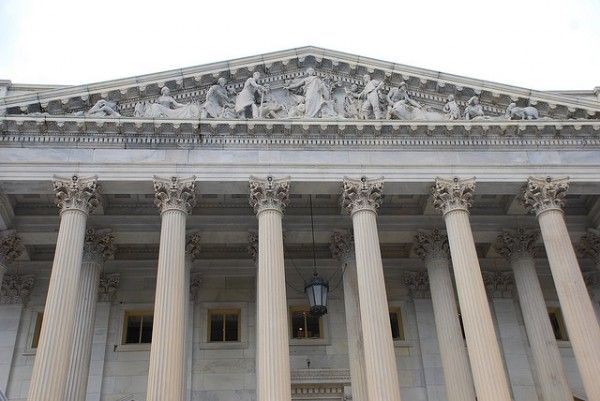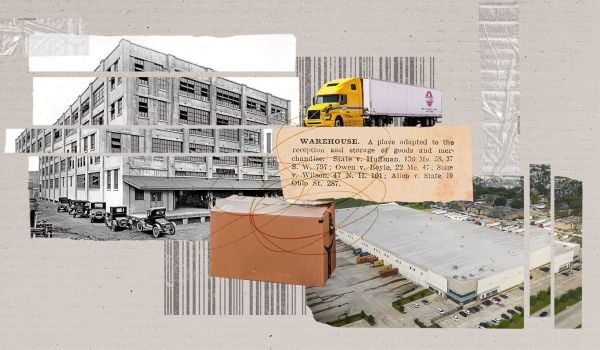Over the last two weeks, Congress has entered the home stretch on a transportation reauthorization bill, naming members for a conference committee set to hash out the differences between the Senate’s two-year MAP-21 bill (S.1813) and the House’s version, HR4348, a three-month extension of existing transportation policy with some environmental provisions tacked on. The committee met publicly on Tuesday to deliver opening statements. Most negotiations will likely happen in private.
Because the House did not pass a comprehensive bill, conference members should use the Senate’s MAP-21 as a guide. MAP-21 is a reform bill that provides funding through fiscal year 2013 and would make the transportation system more accountable, more responsive to local concerns, and more oriented around road and bridge repair and public transportation.
The Transportation for American coalition, which applauded MAP-21, recently identified five goals for the conference committee, saying that the final product should:
• Prioritize repair of roads and bridges;
• Provide access to funding for community-based transportation projects, like pedestrian and bicycle infrastructure;
• Allow more local flexibility for public transit funding;
• Promote transparency and accountability in the planning process; and
• Ensure the public and local officials have a meaningful voice on projects that affect them.
The conference committee’s members include several lawmakers from the region. The Senate conferees include Senators Chuck Schumer of New York and Bob Menendez of New Jersey. House conferees include New York Congressmen Tim Bishop, Jerry Nadler and Richard Hanna. Below, we examine some of the issues that will arise as lawmakers discuss the two bills.
An Extreme Bill or a Bipartisan One?
House Transportation and Infrastructure Committee Chair John Mica has repeatedly said “anything can happen in conference” and that he will push for provisions that were included in HR7 — the discredited House transportation proposal that would have eliminated pedestrian and bike safety funds, threatened local control of transportation funding and ended dedicated funding for transit.
While HR7 was too extreme to pass the House, MAP-21, a bipartisan compromise, is an ideal model for potential conference committee legislation that could pass both houses. At Tuesday’s conference committee meeting it was praised by senators across the spectrum. Sen. Barbara Boxer (D-Calif.) said, “If Senators Boxer and Jim Inhofe can agree on a bill, we can all agree on a bill.” For his part, the staunchly conservative Sen. Inhofe (R-Okla.) urged conservative House members to support the bill. Sen. Kay Bailey Hutchinson (R-Texas), the ranking member of the Senate Commerce Committee, said there was “complete consensus” on the parts of the bill her committee wrote.
Will Environmental Review Remain?
The one piece of HR7 that the House did include in its short-term extension bill was a provision that supporters euphemistically term “environmental streamlining.” In reality, the provision would go far beyond any reasonable attempt to speed up projects. Instead, it would eviscerate the review process required for major projects, greatly reducing protections for health, safety and the environment.
One provision puts a 270-day deadline on project reviews under the National Environmental Policy Act. Any project whose review is not finished in that timeframe would be automatically approved, which could threaten the success of long-term transportation projects. Projects that take more than nine months to review are likely to be very complex, like a highway widening that requires eminent domain or a rail tunnel that must avoid other pieces of underground infrastructure. Final decisions on projects like these must be made carefully, not under arbitrary deadlines.
Keystone and Other Provisions
Several provisions not related to transportation have been attached to the bill, such as a controversial measure to leave regulation of “coal ash” to the states, and the non-controversial RESTORE Act that would dedicate most of the funds from the BP oil spill settlement to Gulf Coast states.
The most contentious issue may be the ”Keystone XL” oil pipeline between Canada and the United States. Federal agencies are still reviewing the project, but the House’s extension bill would force approval of the pipeline. The White House has threatened to veto a bill that does so, but House Speaker John Boehner has made the pipeline a centerpiece of his jobs agenda. With little obvious ground for compromise, even many pipeline supporters — such as Inhofe and Montana Sen. Max Baucus — have argued that Keystone should not hold up a transportation bill.

Steven Higashide is one of America’s leading experts on public transportation and the people who use it. As director of research for the national foundation TransitCenter, Higashide has authored groundbreaking reports that have redefined how decision-makers and journalists understand transit. He has taken the bus in 28 cities around the US and the world.




_600_350_80_s_c1.jpg)











